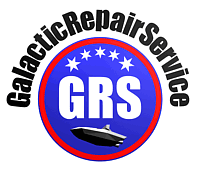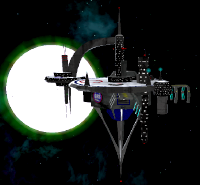Difference between revisions of "BuoyRepair"
m |
Eric Walch (talk | contribs) (New version of oxp) |
||
| Line 57: | Line 57: | ||
===Download=== |
===Download=== |
||
[[Media:BuoyRepair_teaser.zip|BuoyRepair_teaser.zip]] (504 KB) - this OXP is a small appetizer.<br> |
[[Media:BuoyRepair_teaser.zip|BuoyRepair_teaser.zip]] (504 KB) - this OXP is a small appetizer.<br> |
||
| + | [[Media:BuoyRepair1.02.zip|BuoyRepair1.02.zip]] (514KB) - (Updated 21/11/2008) requires v1.72.<br> |
||
[[Media:BuoyRepair1.01.6.zip|BuoyRepair1.01.6.zip]] (319KB) - (Updated 08/06/2008) requires v1.71.2.<br> |
[[Media:BuoyRepair1.01.6.zip|BuoyRepair1.01.6.zip]] (319KB) - (Updated 08/06/2008) requires v1.71.2.<br> |
||
Revision as of 16:17, 21 November 2008
Contents
Introduction
Trading goods between worlds is an extremely dangerous and hard job, and most trading companies are losing ships through accidents, pirate ambushes and thargoid attacks. In 2084003 GCT (Galactic Coordinated Time)/3135 MGMT (Modern Galactic Mean Time) a number of traders’ guilds decided to counteract to the increasing number of accidents by establishing the space buoys as a marker for safe space lanes.
But systems are always slow in replacing destroyed navigation buoys. It is very frustrating when you are at the main station and have to meet a ship on the way to the witchpoint when the witchpoint buoy is destroyed. It is almost impossible to orient yourself in this situation. The authors (Cmdrs. Walch and Svengali) found this very annoying and made a little investigation of the reasons. The main reason seemed to be a systemwide shortage of buoys, so it always took much time to bring in a new buoy from far away and install it.
In most cases the pilot was already in an other system when the replacement arrived.
Buoy Factories
Both authors looked for systems that were prepared to build buoys for a reasonable price. These were found with industrial systems with a medium technical level. Systems of low technical level didn’t have the skills to build the buoys and those of high level found it to inferior work to do. Another selection criterium was the availability of metal ore on the planet so alloys could be extracted from it. The buoys themselves are not strong enough to lift off a planet’s surface, so they have to be assembled in space.
Cmdr. Svengali designed a whole assembly station for this purpose. Parts for the buoys are pre-fabricated on the planet surface and then flown in to the assembly station with shuttles. Those factories are in a constant need of alloys and will also buy alloys flown in from other systems.
The assembly stations have a technologically advanced docking bay sealing: A force-field that keeps the air inside and still allows for a ship to pass trough. This makes it possible to load / unload ships with normal clothing instead of using pressurised suits. The disadvantage is that an approaching pilot has no visible view of the landing bay and has to use special guiding technology to find the right flight path (or use his docking computer).
Buoy Transport vehicles
Buoys are of the size of a medium ship like a Cobra. This means they don’t fit in the cargo bay of a normal ship. It would need a spaceship carrier to transport them. This was rejected as too expensive, so we choose for the lower-cost solution of towing the buoys. For this job Cmdr. Svengali designed a powerful tugship that is capable of delivering the cargo at a reasonable speed.
Distribution System
Meanwhile Cmdr. Walch built a distribution system to send newly-assembled buoys from the factory to other systems before they are actually needed. Once docked in another system, the replacement buoys are stored in a safe place in the main stations. Now, when a buoy gets destroyed, a new one can be brought into place without much delay.
When the main station buoy needs to be replaced, a new one can be retrieved directly from the station. When a witchpoint beacon is destroyed a new one will be brought in by hyperspace jumping with a buoy from an adjacent system.
Installation
Take the file "buoyRepair1.01.6.oxp" and put it in Oolite’s AddOns folder. After a restart the new factories are in place and the distribution of the replacement buoys will start. Now, when a buoy gets defect, a replacement sequence is started within 2 minutes. Sometimes replacement takes longer when traffic around stations is too busy, but this is dependent on the local station manager’s ability to schedule dockings and launches.
Version requirement
The latest version of this OXP needs Oolite 1.71.2 or higher to work.
Download
BuoyRepair_teaser.zip (504 KB) - this OXP is a small appetizer.
BuoyRepair1.02.zip (514KB) - (Updated 21/11/2008) requires v1.72.
BuoyRepair1.01.6.zip (319KB) - (Updated 08/06/2008) requires v1.71.2.
If your machine is too slow you could try the following version
BuoyRepair1.00.zip (318KB) - requires v1.71.



